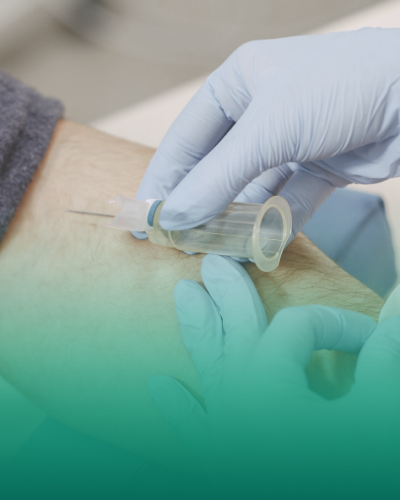Giving blood for donation is a noble act that has many positive consequences for both the donor and the people in need of the blood.
Donated blood can save the lives of people suffering from severe injuries, bleeding, cancer, anemia and other medical conditions that require blood transfusions.
Regular blood donations help maintain blood supplies in healthcare facilities, which is important for quickly and effectively responding to emergencies and medical emergencies.
Donating blood is a noble cause that saves lives, but myths and fears often prevent people from deciding to donate. Let’s look at a few common misconceptions:
Myth: Blood donation leads to poor health
Donating blood, on the contrary, can be beneficial for the health of the donor. Research shows that regularly donating blood helps renew blood cells, which can improve circulation and overall well-being. In addition, the blood donation procedure is an additional opportunity for medical professionals to assess the overall health of the donor.
Myth: Blood donation is a long and complicated procedure.
In fact, donating blood usually takes no more than an hour, including time to fill out forms and a mini-exam with a doctor. The process of donating blood is usually quite simple and does not require special preparation. After donating blood, the donor is asked to rest for a while and drink a cup of tea or coffee to recover.
Myth: Blood donation costs a lot of money
You can donate blood absolutely free. In most cases, donors are even compensated for their time and travel expenses. In addition, many donor centers offer benefits for regular donors, such as free screenings and invitations to special events, and companies offer a day off.
Myth: Blood donation is only for healthy people
While blood donation does require good health, some chronic illnesses or health problems do not preclude the possibility of becoming a donor. It is important to consult with your doctor and receive appropriate recommendations before donating blood. In some cases, people with chronic illnesses can become donors if their condition is controlled and stabilized with medications.
Donating blood can stimulate the growth of new blood cells in the body, which can have a positive impact on the donor’s overall health. Also, the medical screening process before donating blood can help identify potential health problems.
Myth: Blood donation can lead to weight loss
Some people are afraid that after donating blood they will lose weight due to losing some of their blood. However, the amount of blood lost in one blood donation is small and usually amounts to only 10% of the total blood volume in the body. This loss is compensated for by the restoration of blood within a few days, and the donor does not notice any significant changes in his weight.
Myth: Blood donation can affect medical test results
Some people worry that after donating blood, their medical tests, such as blood tests or screenings, may give false results due to changes in the blood. However, donating blood usually does not significantly affect the results of medical tests, and doctors take this fact into account when interpreting the results. The test that is usually affected by a blood loss is calcium.
Myth: Blood donation can cause long-term fatigue and weakness
Some people are afraid that after donating blood they will feel very tired and weak for a long time. However, most donors feel fine after donating blood and recover within a short time. Feelings of fatigue or weakness, if they occur, usually pass quickly and do not have a serious impact on daily life.
By donating blood, donors express their social responsibility and compassion for those in need. It is a way to make a positive contribution to society and help those in need. Many people feel a sense of satisfaction and satisfaction knowing that their actions can help save someone’s life or improve the quality of life of a patient.






